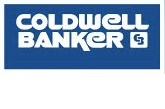Buying an Affordable Home
House hunting for the “affordable” can be quite a challenge, and with the high value of today’s real estate, it may seem an increasingly difficult task. To create an accurate measure of “affordability”, some essential factors you should consider are income, operating costs and the overall value of the home. When purchasing a home, the percentage of your income that you can afford to spend must be considered closely.
Start with your home buying plan by determining how much you can easily afford to spend on housing. I say “easily” because life sometimes has a way of surprising us, and you don’t want to start with a budget that’s so tight, there’s no room for unexpected contingencies.
When devising your housing budget, think about your lifestyle. Although it may seem easy to handle a large mortgage at first, it may require cutting back on other expenses, such as clothing or furniture. Make sure that if you make any concessions in these areas, you’re prepared to live with your decision for a prolonged period. Owning a home can give you a tremendous amount of pleasure and personal satisfaction, as long as your plan affords you sufficient resources to enjoy it with peace of mind.
The next part of the affordability is estimating your costs. There are many factors to take into consideration. You’ll need to carefully estimate both your closing costs on your new home as well as your monthly carrying costs This is where a skilled salesperson can really prove their value.
Closing Costs
When looking to buy a new home, there are many costs to consider.. moving costs, legal fees, even re-decorating expenses. There may also be additional costs associated with leaving your existing residence, such as lease penalties, or mortgage discharge fees.
One of the areas where home buyers most frequently run into trouble is with closing costs. Home buyers often do not properly anticipate the costs associated with closing a real estate transaction, and the resulting “cash crunch” can add stress at a time when you need it least.
In addition to your down payment, there are many other expenses that must be paid on closing day before your home purchase can be completed. Closing costs may include land transfer tax, inspection fees, appraisal fees, title search, insurance, lawyer’s fees and applicable taxes, such as GST. An important component of closing costs is your proportionate share of property taxes, utilities etc. that may have already been pre-paid by the vendor. You should expect to reimburse the vendor for the costs associated with the period following your closing date.
There may be other costs that will be necessary to complete your transaction, such as the cost of a property survey. A good salesperson should be able to help you estimate closing costs before you commit to an offer to buy a home. In some circumstances, your real estate representative may even recommend spelling out the terms for some of the expenses to be incurred with your offer to purchase. Good preparation can help make your closing day trouble free.


